
- Country Profile
- Student Life
- Education
- Requirements
- Costs
- FAQs
- prev
- next
Intro
About Study in Ireland
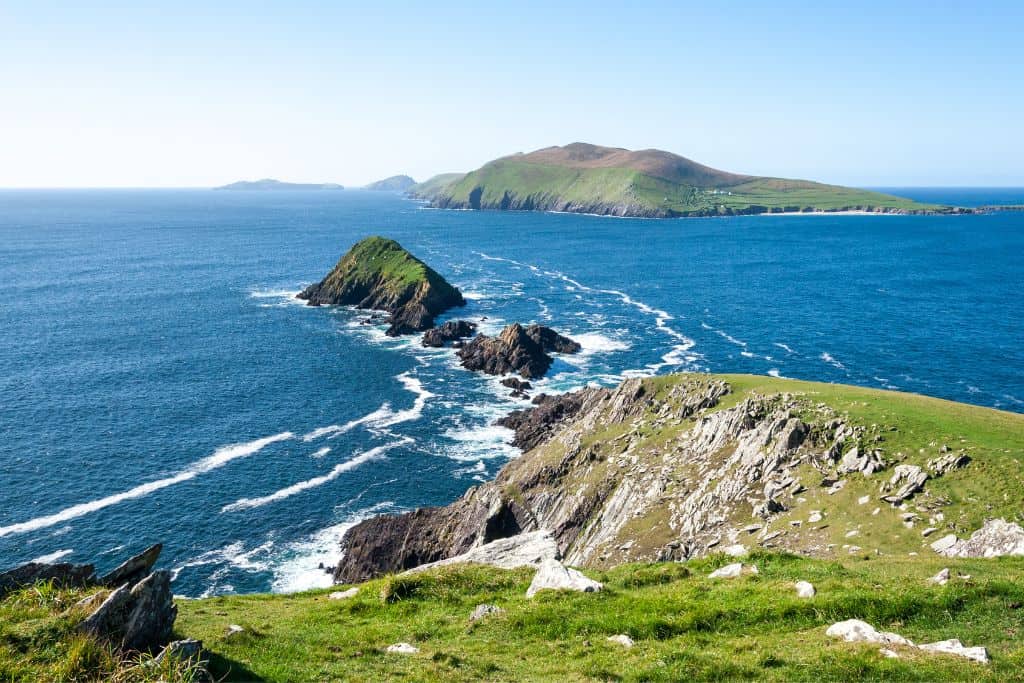
Imagine a place where rolling emerald hills meet rugged coastlines, where ancient history blends seamlessly with vibrant modern culture, and where every corner tells a story of resilience and charm—welcome to Ireland! Known affectionately as the "Emerald Isle," this enchanting island stands as the third-largest in Europe, offering international students a unique blend of breathtaking natural beauty, rich cultural heritage, and world-class education. Divided into the Republic of Ireland and Northern Ireland (part of the United Kingdom), the country boasts a mild climate that nurtures its lush landscapes and iconic landmarks like the dramatic Cliffs of Moher and the tranquil Aran Islands. With over 30,000 castles and castle ruins, Ireland’s history is a tapestry of ancient Celtic civilizations, medieval kingdoms, and centuries of cultural evolution, shaping a nation known for its enduring spirit and creativity. Ireland promises a safe and welcoming environment for students from all over the world. Whether you’re drawn to its academic excellence, warm hospitality, or unforgettable scenery, Ireland offers more than just a study destination—it’s an adventure waiting to unfold.
Economy of Ireland

Ireland’s economy is a remarkable example of resilience, innovation, and global integration. Known as the "Celtic Tiger" during its rapid growth in the 1990s and early 2000s, the country has transformed into one of the most dynamic and prosperous economies in the European Union. A key driver of this success is its status as a global hub for multinational corporations (MNCs), particularly in technology, pharmaceuticals, and finance. Ireland’s 12.5% corporate tax rate, one of the lowest in the EU, has attracted numerous multinational companies, including giants like Google, Facebook (Meta), Pfizer, and Intel. Additionally, its membership in the European Union provides companies with access to the EU’s single market of over 450 million consumers, while its highly educated, English-speaking workforce makes it an attractive destination for global businesses.
Ireland’s economy is diverse, with several key sectors driving its growth. The technology sector is a standout, with Dublin’s “Silicon Docks” serving as the European headquarters for tech giants like Google, Microsoft, and Twitter. The country is also a global leader in software development, cloud computing, and artificial intelligence. The pharmaceuticals and life sciences sector is another major contributor, with Ireland being one of the world’s largest exporters of pharmaceuticals. Companies like Pfizer, Johnson & Johnson, and Novartis operate major facilities in the country. Dublin’s International Financial Services Centre (IFSC) further strengthens the economy, acting as a hub for banking, insurance, and fintech companies, including Bank of America, Citibank, and Stripe. Finally, Ireland’s agri-food industry is renowned for its high-quality exports, such as dairy products like butter and beef, solidifying its reputation as a global leader in food and beverage production.
This combination of factors—low corporate taxes, EU membership, a skilled workforce, and a diverse, thriving economy—has positioned Ireland as a global success story. Its ability to attract multinational corporations, foster innovation, and maintain strong export performance underscores its resilience and adaptability in an ever-changing global economy. Ireland’s economic landscape offers excellent opportunities for businesses, professionals, and students alike, making it a compelling destination for those seeking growth and success in a globally connected world.
Why Study in Ireland

- Top-Quality Education: Ireland is home to some of the world’s leading universities and institutions, known for their academic merit and cutting-edge research. Universities like Trinity College Dublin, University College Dublin, and University College Cork consistently rank among the best globally, offering a wide range of programs tailored to meet the needs of international students who choose to study in Ireland.
- Global Recognition: Irish qualifications are highly respected worldwide, opening doors to career opportunities across the globe. The country’s education system emphasizes critical thinking, creativity, and practical skills, ensuring graduates are well-prepared for the demands of the modern workforce.
- Safe and Welcoming Society: Ranked 2nd in the 2024 Global Peace Index, So it is a safe and peaceful country. Its friendly and inclusive culture ensures that international students feel welcomed and safe throughout their stay.
- English-speaking Country: approximately 98% of its population uses English. This makes it an ideal destination for international students planning to study in Ireland, as it eliminates language barriers and ensures seamless communication in both academic and everyday settings.
- Global Career Opportunities: Employment opportunities in Ireland are strong and driven by the presence of leading global companies like Google, Facebook, Apple, Microsoft, and LinkedIn, which have established their European headquarters in the country. This has fostered a dynamic job market, especially in sectors like technology, finance, and digital marketing. With its favorable corporate tax rates and business-friendly environment, Ireland serves as a hub for multinational corporations, offering numerous employment opportunities for graduates seeking full-time roles after completing their studies
- Strong Focus on Student Support: Irish universities provide excellent support services for international students, including orientation programs, academic assistance, student unions, and career guidance.
Study Fields in Ireland

Ireland offers a wide variety of academic programs across various fields. Whether you’re interested in pursuing a career in business, health, social sciences, natural sciences, or engineering, Ireland’s universities provide world-class education and research opportunities. Here's a breakdown of the top fields of study:
Business Management
Ireland’s dynamic economy and status as a European business hub make it an ideal place to study Business Management. With multinational giants like Google, Apple, and Facebook headquartered here, students gain unparalleled exposure to the global business world. Programs focus on entrepreneurship, marketing, finance, and international business, preparing graduates for leadership roles.
Health & Medicine
Ireland is renowned for its excellence in Health & Medicine, offering cutting-edge programs in medicine, nursing, pharmacy, and public health. Students benefit from state-of-the-art facilities, hands-on training, and research opportunities in world-class hospitals and laboratories.
Social Sciences
Studying Social Sciences in Ireland provides a deep understanding of human behavior, societies, and global challenges. Programs in psychology, sociology, political science, and international relations are designed to foster critical thinking and research skills. Ireland’s rich history and diverse culture make it a unique place to explore these disciplines.
Natural Sciences
Ireland’s commitment to sustainability and its diverse and inspiring natural environments make it a perfect destination for studying Natural Sciences. Programs in biology, chemistry, environmental science, and physics emphasize hands-on learning and research, with opportunities for fieldwork in Ireland’s unique ecosystems.
Engineering & Technology
Ireland is a global leader in Engineering & Technology, with a booming tech industry and strong ties to companies like Intel, Microsoft, and Amazon. Students who study in Ireland can specialize in software engineering, mechanical engineering, renewable energy, and more, gaining the skills needed to thrive in a fast-evolving industry.
Popular Cities for International Students in Ireland

Ireland stands out as a premier destination for international students, offering a blend of world-class education, vibrant culture, and stunning landscapes. Whether you want to study in Ireland in a bustling city or a peaceful town, the country offers diverse options for students. Below are the most popular Irish cities for international students, each with its unique charm and academic opportunities:
Dublin: the capital of Ireland, is home to well-known universities like Trinity College Dublin and University College Dublin. The city is famous for its lively culture, historic sites, and growing tech industry, making it a great place for international students to study and experience both the past and the future.
Cork: Ireland's second-largest city, is known for its welcoming atmosphere and strong academic reputation. University College Cork (UCC) attracts students from around the world. The city boasts a lively arts scene, scenic riverside views, and a perfect blend of urban life and nature, all within a walkable city that makes exploring its charm and culture effortless.
Limerick: combines rich history with a modern, youthful atmosphere, making it a dynamic destination for students. The University of Limerick is renowned for its research and innovation, offering top-tier education in a vibrant setting. Students can explore the city’s historic landmarks like King John’s Castle, which dates back to the 12th century or enjoy leisurely walks along the scenic Shannon River, with its lively social scene, beautiful parks, and easy access to outdoor adventures in the surrounding countryside.
Maynooth: is a small, friendly town in Ireland that is great for international students. It is home to Maynooth University, which is known for its quality education and welcoming atmosphere. The university offers modern facilities and a range of courses to suit students from around the world. The town has a relaxed feel, with shops, cafes, and plenty of green spaces to enjoy. Being close to Dublin, it’s easy for students to explore the city while enjoying the peaceful environment of Maynooth. It’s a perfect place for studying and making new friends.
Life After Graduation

One of the most attractive features of studying in Ireland is the Third Level Graduate Scheme, a program designed to help non-EU graduates transition smoothly from education to employment. This scheme allows graduates to remain in Ireland after completing their studies to seek employment or gain valuable work experience. Here’s how it works: graduates with a Level 8 qualification (such as an Honours Bachelor’s degree) can stay for 12 months, while those with a Level 9 qualification (such as a Master’s degree) or higher can stay for up to 24 months. To be eligible, you must have completed your degree from a recognized Irish institution. This scheme offers a unique opportunity to gain international work experience, build professional networks, and explore career opportunities in Ireland’s thriving job market. The Third Level Graduate Scheme reflects Ireland’s commitment to supporting international students and helping them achieve their career goals after graduation.
Ireland’s education system is tailored to equip students with the skills needed to excel in the real world, and the results are impressive. 83% of graduates secure employment within nine months of completing their studies, showcasing the strong alignment between Irish education and industry needs. Graduates in Education top the list with a remarkable 93.9% employment rate, driven by the high demand for qualified educators. Fields like Health, Engineering, and Technology also boast excellent job prospects, thanks to Ireland’s thriving industries in these areas. While graduates in Arts & Humanities face more challenges, with a 66.3% employment rate, many succeed by applying transferable skills such as critical thinking, communication, and creativity to diverse career paths. These statistics highlight Ireland’s commitment to preparing students for successful careers, no matter their field of study.
Ireland’s Weather: Mild, Unpredictable, and Green

Ireland has a mild oceanic climate, with cool summers and mild winters. Summer temperatures range from 15°C to 20°C (59°F to 68°F), while winters typically stay between 5°C and 8°C (41°F to 46°F). Rain is common throughout the year, especially on the West Coast, and the weather can be unpredictable, with frequent showers and occasional sunshine. Snow is rare, and the country can experience strong winds, particularly along the coast. Overall, Ireland’s weather is changeable, contributing to its lush, green landscapes.
Video
Location
-
Ireland
Facts About Ireland
Location
- Ireland is an island nation in northwestern Europe, nestled in the North Atlantic Ocean and separated from Great Britain by the Irish Sea. It lies to the west of the United Kingdom and is surrounded by the Celtic Sea to the south and the Atlantic Ocean to the west and north.
Time zone
- Ireland operates on Greenwich Mean Time (GMT) during the winter months and switches to Irish Standard Time (IST) during daylight saving time
Population
- As of 2025, Ireland’s population stands at over 5 million.
Languages
- Official Languages: English and Irish (Gaeilge)
Capital
- Dublin
Currency
- The Republic of Ireland uses the Euro (€) as its official currency
Study In Ireland: Student Life
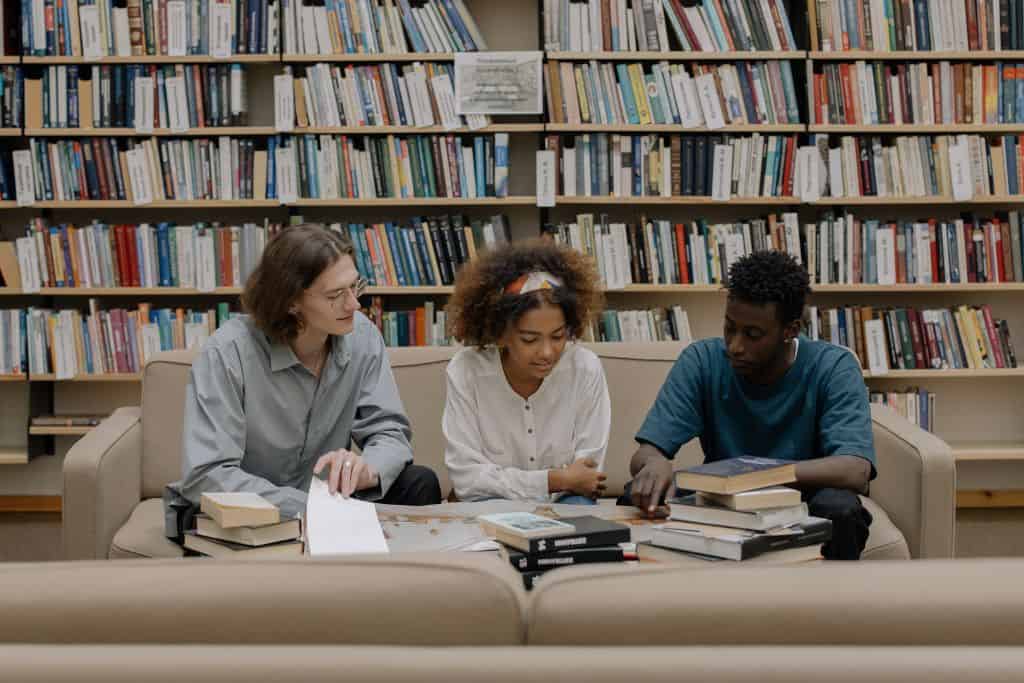
Studying in Ireland is an amazing mix of learning, fun, and adventure! Ireland is famous for its friendly people, great universities, and beautiful green landscapes. As a student here, you’ll join top-ranked universities, where classes are lively and teachers encourage you to think creatively. You can live in dorms on campus or share an apartment with friends in the city. Getting around is easy with buses and trains, and students get discounts on travel with a Leap Card. You’ll never run out of things to do—join clubs, and student organizations, go to music festivals, watch Gaelic football, or explore castles and cliffs on weekends. Want to earn extra money? You can work part-time in cafés, shops, and more while you study. After class, try traditional Irish stew, join a local sports team like hurling, visit free museums, bike through scenic parks, or volunteer in the community. Ireland feels safe and welcoming, and universities offer a lot of help to students who want to engage in the university community. Whether you’re hiking along the coast, chatting with locals, or attending a festival, student life here is about learning, growing, and creating memories you’ll never forget!
Irish Culture

Irish culture is a vibrant blend of ancient traditions, folklore, and modern influences, offering international students a warm and exciting experience. At its heart is St. Patrick's Day, a lively celebration where people wear green hats, decorate streets with shamrocks, and enjoy parades and music. Traditional Irish music and dance, like the iconic Riverdance or folk tunes played on the fiddle and tin whistle, are central to social life, with many festivals offering a chance to join in. Irish cuisine, from hearty Irish stew to fresh seafood, reflects the country’s history and love for good food. Known for their humor and hospitality, the Irish value community and family, making it easy for students to feel included. While English is widely spoken, the Irish language (Gaelic) remains a cherished part of the culture. For students, experiencing Irish culture means joining festivals, trying local foods, learning a dance, and enjoying the lively, friendly atmosphere that makes Ireland so special.
Accommodation Options for International Students in Ireland
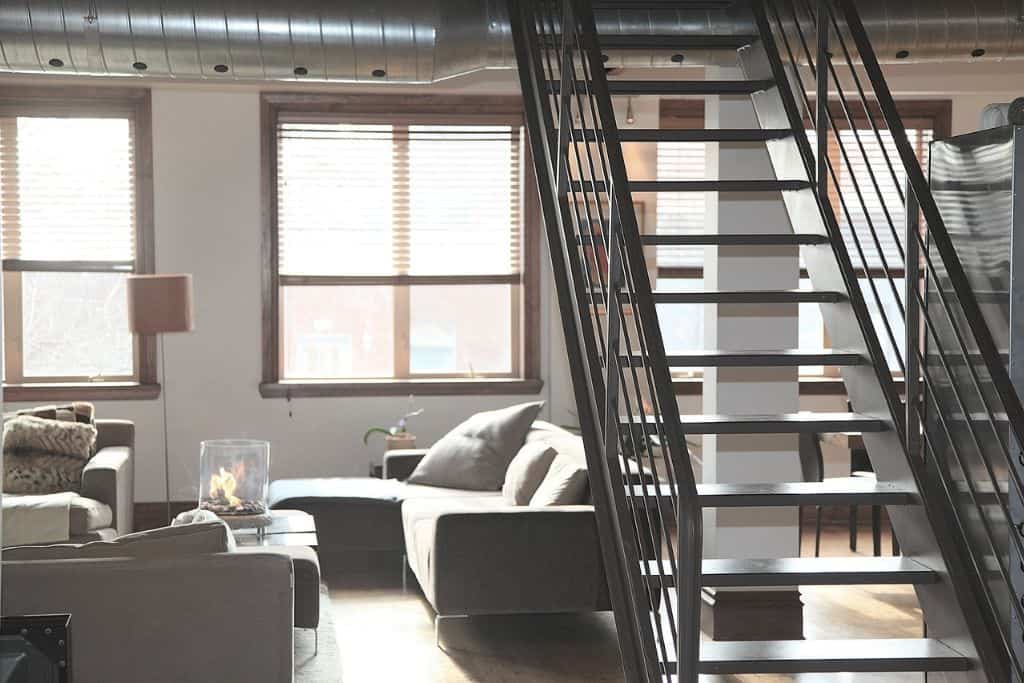
Finding the right place to live is an important part of your study abroad experience in Ireland. Whether you prefer living on campus, or in private housing, there are plenty of options to suit your needs. Below are the main accommodation types available for international students in Ireland:
On-campus Accommodation: On-campus accommodation in Ireland is a top choice for international students seeking a seamless and enriching university experience. Designed with global students in mind, these residences offer modern, fully furnished rooms equipped with high-speed Wi-Fi, communal kitchens, study areas, and 24/7 security, ensuring a safe and comfortable living environment. With easy access to academic buildings, libraries, and campus facilities, on-campus housing allows students to fully immerse themselves in university life. Unique perks like sustainability-focused housing and vibrant student communities make on-campus living a standout option. Choosing on-campus accommodation in Ireland ensures a stress-free start to your academic journey, surrounded by a diverse and welcoming community.
Private Rentals: Private rentals for international students in Ireland typically include shared accommodation, studio apartments, or entire houses, with prices varying depending on the location. Popular cities like Dublin, and Cork offer a range of options, but Dublin tends to have higher rent costs.
Accommodation Hacks for International Students
Start Early: Begin your search early, especially in popular cities like Dublin and Cork.
Set a Budget: Factor in rent, bills, and travel. Consider sharing accommodation to save money.
Pick a Good Location: Choose a place close to the university or with easy public transport access.
Check Essentials: Ensure the property has Wi-Fi, heating, and laundry facilities.
Ask for Reviews: Get feedback from current tenants or read reviews online.
Read the Lease: Understand the rental agreement and know your rights.
Join Student Networks: Such as Facebook groups.
Consider Shared Living: Living with roommates can save money and offer a more social experience.
Transportation in Ireland

Ireland offers a variety of transportation options tailored to students' needs, combining affordability, convenience, and accessibility. Here's a comprehensive guide:
Trams and Trains
Ireland’s cities are well-connected by trams and trains, making it easy for international students to get around. In Dublin, the LUAS tram system is a popular choice, with two main lines that cover the city. It’s a quick and convenient way to reach universities, shopping areas, and tourist spots. For longer trips, Irish Rail runs trains to major cities like Cork, Galway, Limerick, and even Belfast. The trains are comfortable and offer great views of the countryside. Plus, students can often get discounts on tickets, making it a budget-friendly option for exploring Ireland.
Buses
Buses are a key part of public transport in Ireland, especially for students. Bus Éireann runs services across the country, connecting cities and smaller towns. In Dublin, Dublin Bus covers almost every part of the city, making it a reliable choice for daily travel. Buses are affordable, frequent, and easy to use. Whether you’re commuting to class or exploring the countryside, buses are a practical and cost-effective option.
Taxis
Taxis are a convenient option for international students, especially when you’re in a hurry or carrying heavy bags. In cities like Dublin, taxis are easy to find and can take you directly to your destination. While they are more expensive than buses or trains, they’re a good choice for late-night travel or when public transport isn’t available. Sharing a taxi with friends can make it more affordable. Taxis are a reliable way to get around, especially when you need a quick and comfortable ride.
Health Insurance for Non-Eu/EEA Students

Health insurance is mandatory for non-EU/EEA students in Ireland and there are several options available to ensure you are covered during your stay. Private health insurance plans typically provide comprehensive coverage, including access to general practitioners, hospital stays, and emergency services. Some universities also offer insurance plans specifically tailored to international students, often in collaboration with reputable providers. For students staying less than a year, travel insurance with medical coverage may also be sufficient, as long as it meets the requirements set by Irish visa regulations.
Things to do in Ireland beyond the classroom

Ireland offers a wide range of activities for students beyond the classroom. From visiting ancient landmarks that tell the stories of Ireland’s past to enjoying the great outdoors with thrilling adventures, there’s no shortage of things to do. Whether you’re interested in understanding Ireland's historical significance or experiencing its stunning landscapes, these activities will enhance your time in Ireland and provide a deeper connection to the country’s heritage and natural wonders.
Cliffs of Moher: Enjoy stunning views of the Atlantic Ocean.
Rock of Cashel: Explore an ancient site filled with history and legends.
Kilmainham Gaol: Learn about Ireland's struggle for independence.
Ashford and Trim Castles: Experience the medieval lifestyle in these historic castles.
National Museum of Ireland: Discover ancient artifacts that reflect Ireland’s rich heritage.
Chester Beatty Library: Admire the incredible collection of manuscripts and art.
Wicklow Mountains: Hike through picturesque landscapes.
Great Western Greenway: Bike along this scenic route.
Killarney National Park: Kayak in the beautiful lakes.
Wild Atlantic Way: Surf along Ireland’s rugged coastline.
Aran Islands: Take a ferry to explore these iconic islands.
Part-Time Work in Ireland for Non-EU Students

International students from non-EEA countries with a valid Stamp 2 visa are eligible to work part-time while studying in Ireland, allowing them to balance their academic and financial responsibilities. During term time, students can work up to 20 hours per week, ensuring their employment doesn’t interfere with their studies. However, during official holiday periods, such as from June to September and mid-December to mid-January, they can increase their working hours to 40 per week. Part-time jobs offer students a practical way to cover living expenses while gaining valuable work experience in an international environment.
Submit an Inquiry
The Evolution of Higher Education in Ireland: From Tradition to Global Leadership

The roots of Ireland’s academic excellence trace back to the establishment of Trinity College Dublin in 1592, which remains one of the oldest and most world-class universities in Europe. Over the centuries, Ireland’s education system has evolved from traditional, classical studies to a dynamic, research-driven model that emphasizes innovation, technology, and global collaboration.
Today, Ireland is a global leader in education, attracting students from all over the world. Its integration into the European Higher Education Area and active participation in the Bologna Process since 1999 have strengthened its global standing, ensuring that Irish qualifications are recognized and respected worldwide. Key milestones, such as the growth in international student enrollment to over 35,000 students and the establishment of cutting-edge research facilities, highlight Ireland’s commitment to providing world-class education. With its rich academic heritage, forward-thinking approach, and welcoming environment, Ireland continues to be a top choice for students seeking a transformative college experience.
Levels of Degrees in Ireland
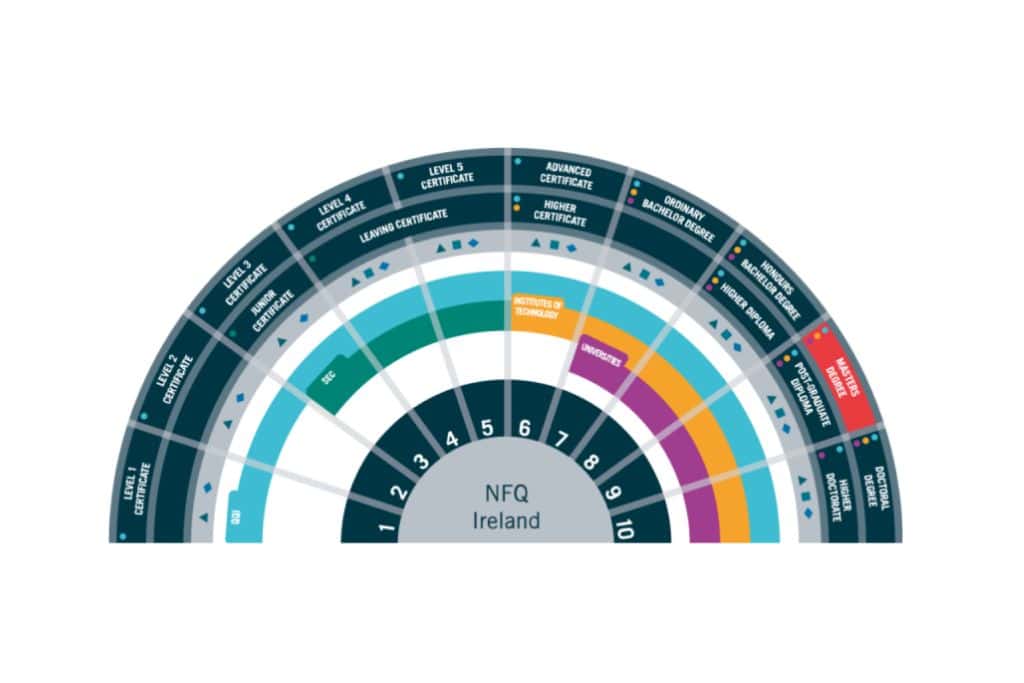
Ireland’s higher education system is designed to meet the needs of students from all walks of life, offering a well-structured framework that balances academic rigor with practical application. Built on the National Framework of Qualifications (NFQ), it ensures that every degree is recognized and respected internationally. The system also supports credit transfer, allowing students to move seamlessly between institutions and programs. Whether students aim to gain a solid foundation in their chosen field, pursue specialized training, or contribute to groundbreaking research, Ireland offers opportunities that align with their goals. With a strong emphasis on quality education, employability, and innovation, the country’s degree programs empower students to succeed in a fast-changing world.
Below is a clear breakdown of the degree levels to help you find the right program for your goals:
| Level | Degree | Duration | Description |
|---|---|---|---|
|
Level 7 |
Bachelor’s Degree |
3-4 years |
Provides foundational knowledge in a chosen field. |
|
Level 8 |
Honours Bachelor’s Degree |
3-4 years |
Offers deeper specialization, often including research components. |
|
Level 8 |
Higher Diploma |
1 year |
Ideal for switching fields or gaining additional qualifications. |
|
Level 9 |
Postgraduate Diploma |
1 year |
Focuses on vocational or professional training. |
|
Level 9 |
Master’s Degree |
1-2 years |
Combines coursework and research for advanced specialization. |
|
Level 10 |
Doctoral Degree (e.g., PhD) |
3-4 years |
It involves original research and is ideal for academic or research careers. |
|
Professional Degrees |
Medicine, Law, Engineering, etc. |
Varies |
Specialized programs for careers in fields like medicine, law, and engineering. |
Universities in Ireland
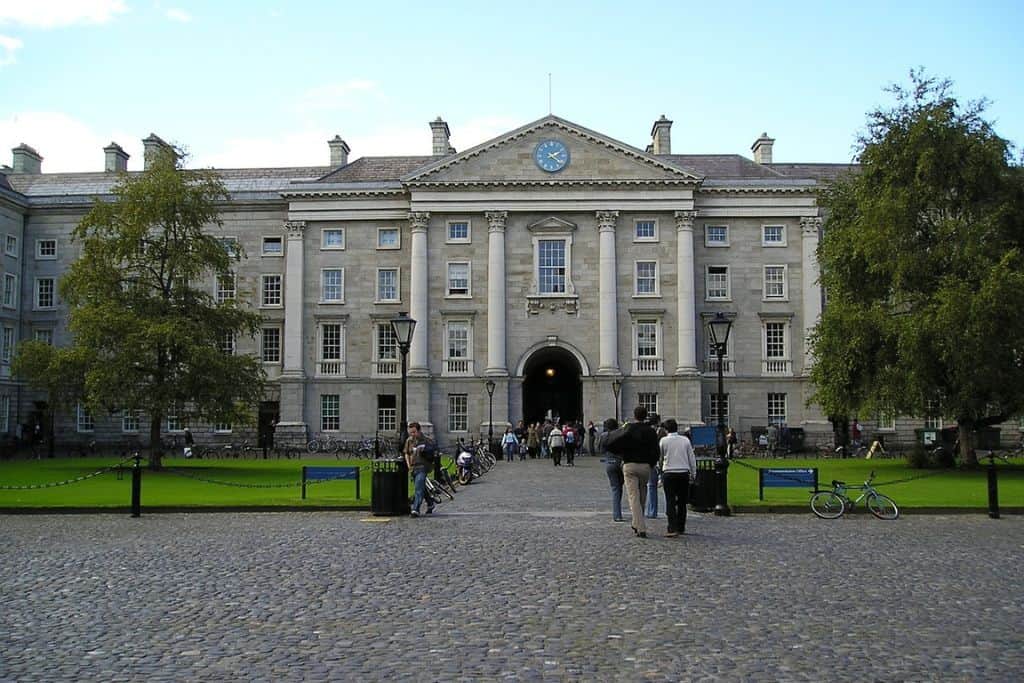
Ireland’s higher educational institutions are not only ranked among the best in the world but also offer a welcoming and inclusive environment for students from all corners of the globe. Whether you’re interested in pursuing research, building industry connections, or experiencing a rich cultural environment, Ireland’s universities offer diverse opportunities to help you achieve your educational goals. Here’s a closer look at some of the country’s leading institutions:
Trinity College Dublin (TCD)
Trinity College Dublin, ranked #1 in Ireland and 87th globally (QS World University Rankings 2025), is Ireland’s oldest and most prestigious university. Founded in 1592, TCD is renowned for its historic campus, world-class research, and exceptional programs in engineering, humanities, and science. With a strong global reputation, TCD attracts students and researchers from over 140 nations, making it a truly international academic hub.
University College Dublin (UCD)
Ranked 126th worldwide (QS World University Rankings), University College Dublin is Ireland’s largest university and a leader in innovation and entrepreneurship. Known for its excellence in business, engineering, and agricultural sciences, UCD provides students with a dynamic learning environment and strong ties to industry. Its modern facilities, vibrant campus life, and focus on employability make it a top choice for students seeking a comprehensive educational experience.
University College Cork (UCC)
University College Cork ranked #273 globally (QS World University Rankings), is a research-intensive university celebrated for its expertise in fields like biotechnology, and health sciences. UCC is also a pioneer in sustainability, with world-class research facilities and strong relationships with global industries. Nestled in a picturesque campus, UCC offers a supportive and inclusive environment, making it a popular destination for international students.
Maynooth University
Ranked #801-850 worldwide (QS World University Rankings), Maynooth University is Ireland’s fastest-growing institution, known for its commitment to research and teaching excellence. Located in a historic town just outside Dublin, Maynooth combines tradition with modern innovation. Its programs in science, Business, and humanities are highly regarded, and its close-knit community fosters a welcoming atmosphere for students from diverse backgrounds.
Institutes of Technology
These institutes focus on programs in science, technology, engineering, and business. They combine academic learning with practical training, making them ideal for students interested in technical careers.
Dundalk Institute of Technology
Dundalk Institute of Technology (DkIT) is a leading higher education institution located in the vibrant town of Dundalk, County Louth. Known for its strong focus on applied learning, industry partnerships, and student success, DkIT offers a wide range of undergraduate and postgraduate programs in areas such as business, engineering, computing, creative arts, and health sciences.
Famous Graduates of Irish Universities
Ireland’s universities have a long and proud history of producing graduates who have gone on to achieve remarkable success in various fields. From Nobel Prize winners to global leaders, these alumni reflect the quality of education and the transformative power of studying in Ireland. Here’s a look at some of the most famous graduates from Irish universities:
James Joyce: A Literary Icon
James Joyce, one of Ireland’s most famous writers, is known for changing the way stories are told. Born in Dublin in 1882, he studied modern languages at University College Dublin (UCD), where he developed his love for writing. His most famous works, including Dubliners, A Portrait of the Artist as a Young Man, Ulysses, and Finnegans Wake, explore human thoughts and emotions in unique ways. Ulysses considered one of the greatest novels of the 20th century, tells the story of a single day in Dublin through the eyes of its characters. As a proud UCD graduate, Joyce’s influence on literature and his connection to Dublin continue to inspire people around the world.
Jack Lynch: A Leader and UCC Graduate
Jack Lynch, a prominent Irish politician and statesman, is remembered as one of Ireland’s most respected leaders. Born in Cork in 1917, he attended University College Cork (UCC), where he studied law. Before entering politics, Lynch was a talented sportsman, excelling in Gaelic football and hurling, and won multiple All-Ireland titles with Cork. He later served as Taoiseach (Prime Minister) of Ireland from 1966 to 1973 and again from 1977 to 1979, leading the country through significant political and economic changes. Known for his calm leadership during turbulent times, including the early years of The Troubles in Northern Ireland, Lynch’s legacy as a UCC graduate and national leader continues to be celebrated in Ireland.
Samuel Beckett: A Nobel-Winning Writer
Samuel Beckett was born in 1906 in Ireland. He studied at Trinity College Dublin, where he focused on literature and languages. Beckett is famous for his plays, novels, and poetry, often exploring themes of life, death, and meaning. His most famous work is Waiting for Godot, a play about two men waiting for someone who never arrives. He wrote in both English and French. Beckett won the Nobel Prize in Literature in 1969.
academic Calendar in Ireland
The academic year in Ireland typically consists of two main semesters, though exact dates can vary depending on the university. The Autumn Semester generally runs from early September to mid-December, followed by a winter break of three to four weeks. The Spring Semester starts in January and continues until late April or early May, with each semester including teaching weeks, a study period, and final exams. After the Spring Semester, students enjoy a long summer break from May to September, which many use for internships, part-time work, or travel. Some universities also offer optional summer school programs during this period for additional academic opportunities.
Submit an Inquiry
Cost of Studying and Living in Ireland for International Students
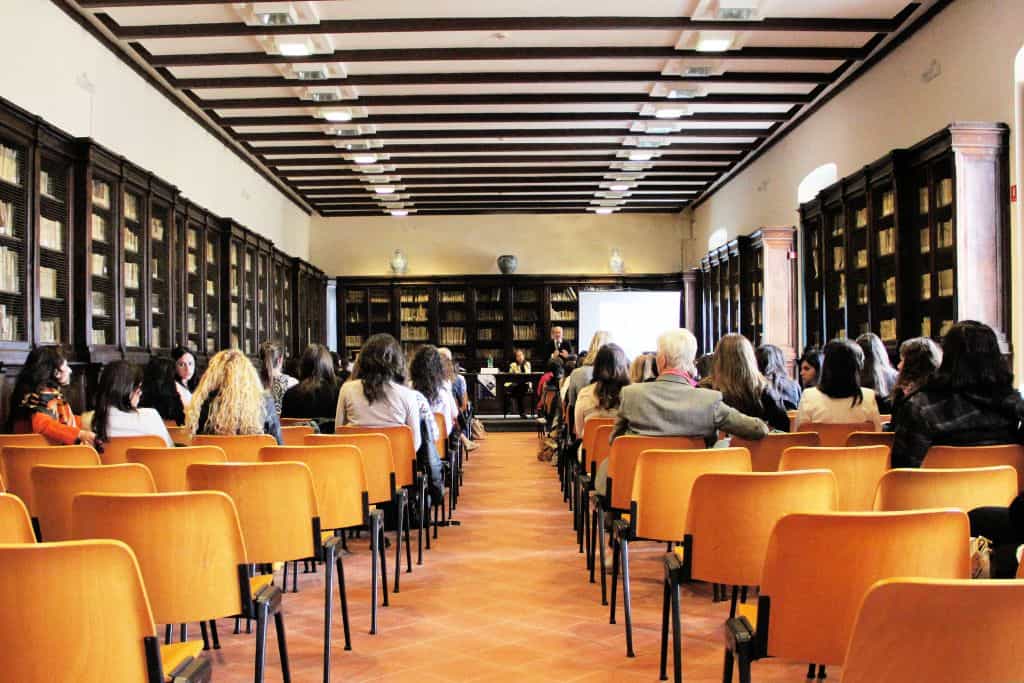
Understanding the admission requirements is essential for a smooth university application to study in Ireland. Each university and program may have specific criteria, and being well-prepared can save you time, reduce stress, and increase your chances of acceptance. By familiarizing yourself with the academic, language, and documentation requirements, you can avoid common pitfalls and present a strong application. Additionally, knowing the deadlines, visa procedures, and financial requirements in advance allows you to plan effectively and meet all necessary conditions without last-minute hurdles. A clear understanding of these requirements not only streamlines your application but also sets the foundation for a seamless transition to study in Ireland.
Academic Requirements to Study in Ireland
Ireland’s universities and colleges have specific academic criteria for admission, which vary depending on the program and institution. Whether you’re applying for an undergraduate or postgraduate course, understanding these requirements is key to a successful application.
Undergraduate Programs
To apply for undergraduate studies in Ireland, you’ll need to meet the following academic requirements:
High School Diploma or Equivalent:
- Applicants must have completed their secondary school education with a high school diploma or an equivalent qualification (e.g., A-levels, IB, or other recognized certificates).
- Ensure your qualification is recognized by the Irish institution you’re applying to.
Minimum Grades or GPA Requirements:
- Most universities require a minimum GPA or specific grades in your high school exams. For example, a GPA of 3.0 or higher (on a 4.0 scale) is often expected.
- Some competitive programs may have higher grade requirements.
Specific Subject Prerequisites:
- Certain programs, such as engineering, medicine, or science, may require you to have studied specific subjects in high school (e.g., mathematics, physics, or chemistry).
Postgraduate Programs
For postgraduate studies, the academic requirements are more specialized and include:
Bachelor’s Degree in a Relevant Field:
- You must hold a bachelor’s degree or equivalent in a field related to the program you’re applying for.
- For example, a business-related degree is often required for an MBA, while a science background is necessary for a master’s in engineering.
Minimum GPA or Honors Degree:
- Most universities require a minimum GPA of 3.0 (on a 4.0 scale) or an upper second-class honors degree (2:1). Some programs may accept a lower second-class honors degree (2:2) if you have relevant work experience.
Relevant Work Experience:
- For professional programs like an MBA or certain master’s degrees, work experience is often a key requirement. Typically, 1–3 years of professional experience is expected.
This requirement ensures that students bring practical insights to the classroom, enriching everyone's learning experience.
English Language Requirements

Proficiency in English is a key requirement for international students who need to study in Ireland, as all courses are taught in English. To demonstrate your language skills, you’ll need to provide results from a recognized English language test—unless you qualify for an exemption. Here’s everything you need to know:
Accepted English Language Tests
Irish universities accept scores from several internationally recognized English language tests. The most common options include:
IELTS (International English Language Testing System): IELTS (International English Language Testing System) IELTS is the most widely accepted English language test for Irish universities. It evaluates your reading, writing, listening, and speaking skills through a paper-based or computer-based format. Scores range from 0 to 9, with most universities requiring an overall score of 6.0–7.0. IELTS is popular because it is globally recognized and accepted by all Irish universities, making it a reliable choice for students worldwide.
TOEFL (Test of English as a Foreign Language): TOEFL is another widely accepted test, particularly popular among students from the Americas. It assesses your ability to use and understand English in an academic setting through an internet-based test (iBT). Scores range from 0 to 120, with most universities requiring 80–100. TOEFL is a great option for students who prefer a test focused on academic English and are comfortable with an online format.
PTE Academic (Pearson Test of English): PTE Academic is a computer-based test known for its quick results and fair assessment of English skills. It evaluates your reading, writing, listening, and speaking abilities through a fully digital format. Scores range from 10 to 90, with most universities requiring 55–70. PTE is an excellent choice for students who need fast results, as scores are typically available within 2–5 days.
Duolingo English Test: Duolingo is an online, affordable, and convenient English test accepted by many Irish universities. It assesses your reading, writing, listening, and speaking skills through a short, adaptive test that can be taken from home. Scores range from 10 to 160, with most universities requiring 95–120. Duolingo is ideal for students looking for a cost-effective and flexible testing option.
Cambridge Advanced (CAE): Cambridge Advanced (CAE) is a high-level English test that focuses on real-life communication skills. It evaluates your reading, writing, listening, and speaking abilities through a paper-based or computer-based format. Scores range from 160 to 210, with most universities requiring 160–185. CAE is widely recognized and emphasizes practical English usage, making it a strong choice for students aiming to demonstrate advanced language skills.
Documentation Checklist for Study in Ireland

Applying to study in Ireland requires careful preparation of essential documents to ensure a smooth application process. Whether you’re applying for an undergraduate or postgraduate program, having the right documents ready is crucial. Here’s a comprehensive checklist to guide you:
Academic Transcripts and Certificates:
- Submit official transcripts and certificates from your previous education (e.g., high school for undergraduates, bachelor’s degree for postgraduates).
- Ensure they are translated into English if they are in another language.
English Language Test Results:
- Provide scores from recognized tests like IELTS, TOEFL, PTE, Duolingo, or Cambridge Advanced (CAE).
- Check the minimum score requirements for your chosen program.
Passport Copy:
- Include a clear and valid copy of your passport as proof of identity.
- Ensure your passport is valid for the duration of your stay in Ireland.
Statement of Purpose (SOP):
- Write a compelling SOP explaining your academic background, career goals, and reasons for choosing the program and university.
- Keep it concise (usually 1–2 pages) and tailored to the program.
Letters of Recommendation (LOR):
- Submit 2–3 LORs from professors, employers, or mentors who can vouch for your academic or professional abilities.
- Ensure the letters are signed, dated, and on official letterhead.
CV/Resume (for Postgraduate Applicants):
- Include a detailed CV highlighting your academic achievements, work experience, internships, and extracurricular activities.
- Tailor your CV to emphasize skills relevant to your chosen program.
Additional Requirements
Depending on your program, you may need to submit additional documents:
Portfolio (for Creative Arts or Design Programs):
- Include a portfolio showcasing your creative work, such as designs, artwork, or projects.
- Follow the specific guidelines provided by the university.
Research Proposal (for PhD Applicants):
- Submit a detailed research proposal outlining your intended research topic, objectives, methodology, and significance.
- Ensure it aligns with the expertise of your potential supervisor.
Visa Requirements

If you’re planning to study in Ireland you’ll need to apply for a Student Visa. Ireland offers two types of student visas, depending on the duration and nature of your course. Below, we explain the two visa types and provide a detailed checklist of the required documents to help you prepare your application.
Types of Student Visas in Ireland
Ireland offers two main types of student visas: the C-Visa (Short-Stay Visa) and the D-Visa (Long-Stay Visa). The C-Visa is for courses lasting less than 3 months, such as short-term language programs or summer schools. It allows a single entry into Ireland and cannot be extended beyond 90 days. This visa is perfect for students looking to experience Ireland’s education system or culture without committing to a long-term program.
On the other hand, the D-Visa is for courses lasting more than 3 months, including undergraduate, postgraduate, and PhD programs. This visa allows multiple entries and can be renewed if your course duration extends. It’s the most common choice for international students who want to study in Ireland for full-time degrees, offering flexibility to travel in and out of Ireland during their studies. Both visas require proof of acceptance, financial means, and medical insurance, so it’s important to prepare your documents carefully.
Required Documents for a Student Visa
To apply for an Irish student visa, you’ll need to submit several key documents. These include:
- Proof of Acceptance: An official letter from a recognized Irish institution confirming your enrollment in a program.
- Proof of Tuition Fee Payment: Evidence that you’ve paid your tuition fees in full or at least the required deposit.
- Proof of Financial Means: Bank statements showing approximately €10,000 to cover living expenses, held for at least 6 months.
- Medical Insurance: Proof of private health insurance covering your stay in Ireland.
- Completed Visa Application Form: Filled out and signed, available on the Irish Naturalisation and Immigration Service (INIS) website.
- Passport-Sized Photographs: Two recent photos meeting the specified guidelines.
- Academic and English Proficiency Documents: Transcripts, certificates, and English test results (e.g., IELTS, TOEFL).
- Additional Documents: A statement of purpose, proof of accommodation, and a valid passport copy.
Submit an Inquiry
Study in Ireland: A Comprehensive Guide to Education and Living Costs for International Students

Planning to study in Ireland? Managing your budget is a crucial step to ensure a smooth and stress-free experience. From tuition fees to daily living costs like food, transport, and accommodation, understanding the costs involved is key to making the most of your time abroad. This guide provides a clear breakdown of the average costs you’ll encounter as an international student in Ireland
Tuition Fees
Undergraduate courses: Average €10,000–€29,000 per year for non-EU students.
Postgraduate courses: Average €6,000–€35,000 per year for non-EU students.
Medicine and specialized courses: Average €30,000–€50,000+ per year.
Accommodation cost
On-campus housing: Average €400–€1000 per month.
Off-campus housing: Average €1000–€2,500 per month.
Utilities (electricity, heating, internet): Average €80–€150 per month (if not included in rent).
Food
Groceries: Average €250–€500 per month.
Eating out: Average €15–€50 per meal at a mid-range restaurant.
Transportation
Public transport: Average €50–€100 per month (student discounts available).
Bicycle rental: Average €8–€15 per day.
Taxi: Average €20–€30 for short trips.
Health Insurance
Mandatory for non-EU students: Average €160–€670 per year.
Study Materials
Books and supplies: Average €200–€400 per year.
Printing and photocopying: Average €10–€20 per month.
Entertainment
Gym membership: Average €40–€60 per month.
Cinema tickets: Average €10–€15.
Social activities: Average €50–€100 per month.
Mobile Phone and Internet
Mobile plan and internet: Average €50–€80 per month.
Estimated Total Monthly Cost
Dublin: Average €1,700–€4,000 per month.
Other cities: Average €900–€1,400 per month.
Tips to Save Money While You Study in Ireland
- Share accommodation to save on rent.
- Cook at home instead of eating out.
- Use student discounts for transport, entertainment, and shopping.
- Work part-time (up to 20 hours per week during term time for non-EU students).
Submit and Inquiry
FAQS
Q: Why should international students choose Ireland as their study destination?
A: Ireland is an excellent choice for international students because of its high-quality education, globally recognized degrees, and innovative research opportunities. As an English-speaking country, it eliminates language barriers, and its safe and welcoming environment makes it easy for students to adapt. Additionally, Ireland is home to many multinational companies, providing excellent post-study work opportunities and a chance to gain valuable international experience. Beyond academics, Ireland offers a high quality of life, and a vibrant cultural experience, with a rich history, friendly locals, and stunning landscapes to explore.
Q: Can international students work while studying in Ireland?
A: Yes, international students in Ireland can work part-time while studying. During the academic term, students can work up to 20 hours per week. During holidays, such as summer and winter breaks, they can work up to 40 hours per week. This allows students to gain valuable work experience, develop new skills, and earn money to help cover their living expenses. It’s a great way to balance studies and work while living in Ireland.
Q: What is the language of instruction in Ireland?
A: The primary language of instruction in Ireland is English, with approximately 98% of the population speaking English. This eliminates language barriers and ensures seamless communication in both academic and everyday settings.
Q: What Documents Are Required for an Irish Student Visa?
A: Proof of Acceptance, Proof of Tuition Fee Payment, Proof of Financial Means, Medical Insurance, Completed Visa Application Form, passport-size photographs, Valid Password, Academic and English Proficiency Documents, and proof of accommodation.
Q: What support services are available for international students?
A: Irish universities offer a wide range of support services to help international students succeed. These include orientation programs to help you settle in, academic advising and tutoring for study guidance, and career counseling and job placement assistance to prepare you for the workforce. Additionally, universities provide mental health and wellness support to ensure your well-being throughout your studies. These services are designed to make your experience in Ireland as smooth and rewarding as possible.
Q: What accommodation options are available for international students in Ireland?
A: For international students in Ireland, there are several accommodation options to choose from. Most universities provide on-campus accommodation, which is convenient and a great way to connect with other students. Alternatively, you can explore off-campus options such as shared apartments, and private rentals. It’s highly recommended that you arrange your accommodation before arriving in Ireland to ensure a smooth transition and a comfortable stay.
Q: Is Ireland a safe country for international students?
A: Yes, Ireland is very safe, ranked 2nd in the 2024 Global Peace Index. The Irish are known for their friendliness and hospitality, making it easy for international students to adapt and feel at home.
Q: What are the tuition fees for study in Ireland?
A: Tuition fees in Ireland for non-EU students vary by program: undergraduate courses cost €10,000–€29,000 per year, postgraduate courses range from €6,000–€35,000 per year, and specialized programs like medicine can cost €30,000–€50,000+ per year. Fees depend on the course and institution, so research your program to plan your budget effectively.
Q: What Was the First University in Ireland?
A: The first university in Ireland is Trinity College Dublin (TCD), founded in 1592 by Queen Elizabeth I.
Q: What is the Third Level Graduate Scheme?
A: This scheme allows non-EU/EEA graduates to stay in Ireland for up to 12–24 months after completing their studies to seek employment or apply for a work permit.
Q: Are Irish qualifications recognized globally?
A: Yes, Irish degrees are highly regarded worldwide, as the country’s education system aligns with the European Qualifications Framework.
Q: Is English proficiency mandatory for international students to Study in Ireland?
A: Yes, international students must demonstrate English proficiency through exams like IELTS, TOEFL, PTE, Cambridge Advanced, or Duolingo English Test.


